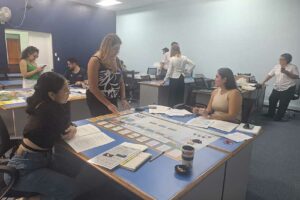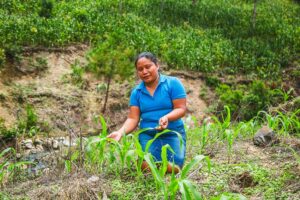Baja Verapaz and Quiché Join the First Training Course for Ecosystem-Based Adaptation Trainers
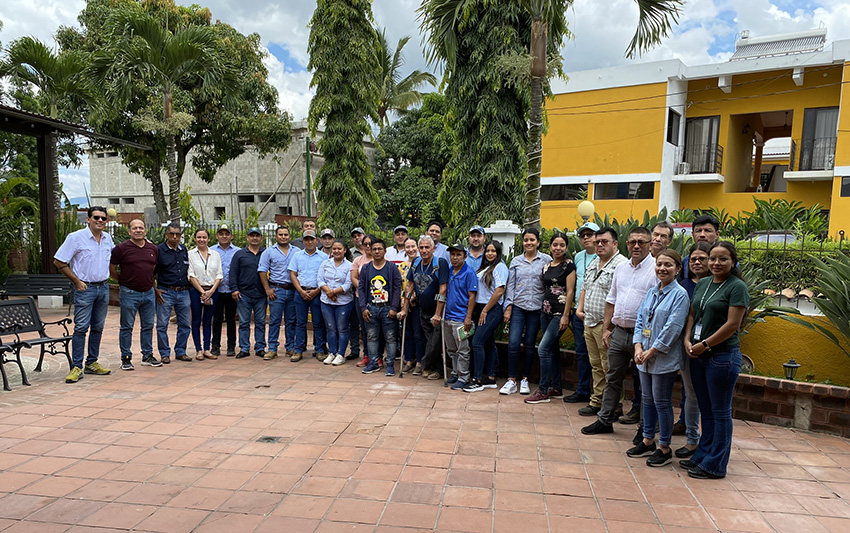
- The course is part of the capacity development and strengthening strategy led by CATIE within the framework of the program "Scaling Ecosystem-Based Adaptation Measures in Rural Latin America" (EbA LAC).
October 9, 2023. In the past month of September, the courses focused on Training of Trainers in Ecosystem-Based Adaptation were launched, primarily in Chimaltenango, and for this occasion, in the venues of Quiché and Baja Verapaz, Guatemala.
The aim of these activities is to foster the technical and functional capacities (soft skills) of a multidisciplinary group of individuals to become agents of change, whether in their organizational, community, or institutional roles, promoting actions against climate change with a focus on Ecosystem-Based Adaptation (EbA).
Approximately 50 individuals have been trained, including decision-makers from relevant institutions at the national and local levels for climate change adaptation, such as the National Forestry Institute (INAB), the Ministry of Agriculture, Livestock and Food (MAGA), the Ministry of Environment and Natural Resources (MARN), and civil society organizations like Water for People, among others. Among the participating institutions, there are already representatives who have begun to integrate the EbA approach into their annual operational plans. Water for People, entre otros. Dentro del grupo de instituciones participantes ya existen representantes que han comenzado a integrar el enfoque AbE en sus planes operativos anuales.
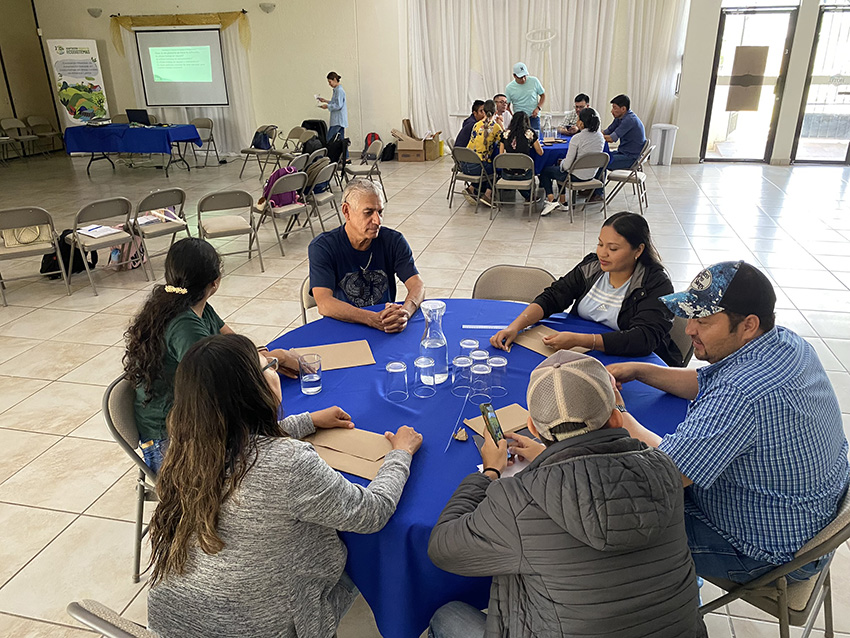
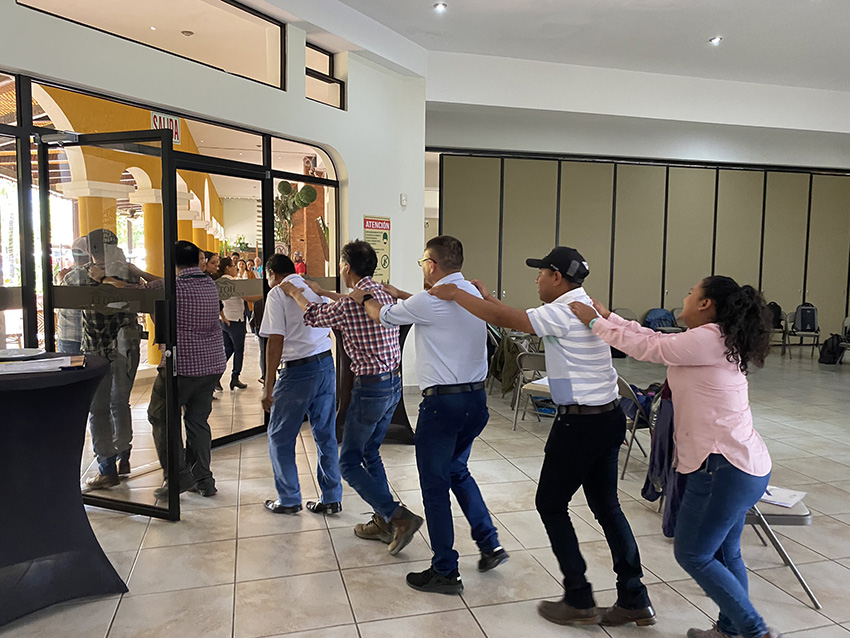
“"The sum of inter-institutional efforts will achieve significant progress in this field in the years to come. Therefore, it is necessary to provide time for the application of this knowledge, as the heart of our work lies within communities, whose members are committed to the well-being of future generations and, consequently, the protection of natural resources," emphasized Angie Tzoy, a Food Security specialist from MAGA.
As the main medium-term objective, the aim is to incorporate the EbA approach into the plans and policies of both public and private institutions, which undertake climate change adaptation actions aligned with sectoral agendas such as the 2030 Agenda for Sustainable Development Goals (SDGs), integrated into the Sustainable Development Plan Katún 2032 for Guatemala, and in line with the commitments of the Guatemalan state expressed in its Nationally Determined Contribution (NDC).
In this way, the course not only seeks to train key individuals in government and the private sector but also to integrate the EbA approach in a more practical and useful manner for personnel.
"This course offers an opportunity to strengthen the connections between biodiversity, ecosystem services, landscape management, and climate change adaptation as a route to increase community resilience," highlighted Arlene López, coordinator on behalf of CATIE (Tropical Agricultural Research and Higher Education Center) for the EbA LAC program.
These actions are carried out within the framework of the EbA LAC program, funded by the German Federal Ministry for the Environment, Nature Conservation, Nuclear Safety, and Consumer Protection (BMUV) through its International Climate Initiative (IKI), implemented by the German Cooperation - GIZ- as the lead agency, in partnership with the International Union for Conservation of Nature (IUCN) and CATIE (Tropical Agricultural Research and Higher Education Center).
The program aims to enhance the resilience capacity of vulnerable communities and ecosystems in rural areas of Costa Rica, Guatemala, and Ecuador to climate change. In Guatemala, it is implemented in close coordination with the Ministry of Environment and Natural Resources (MARN).
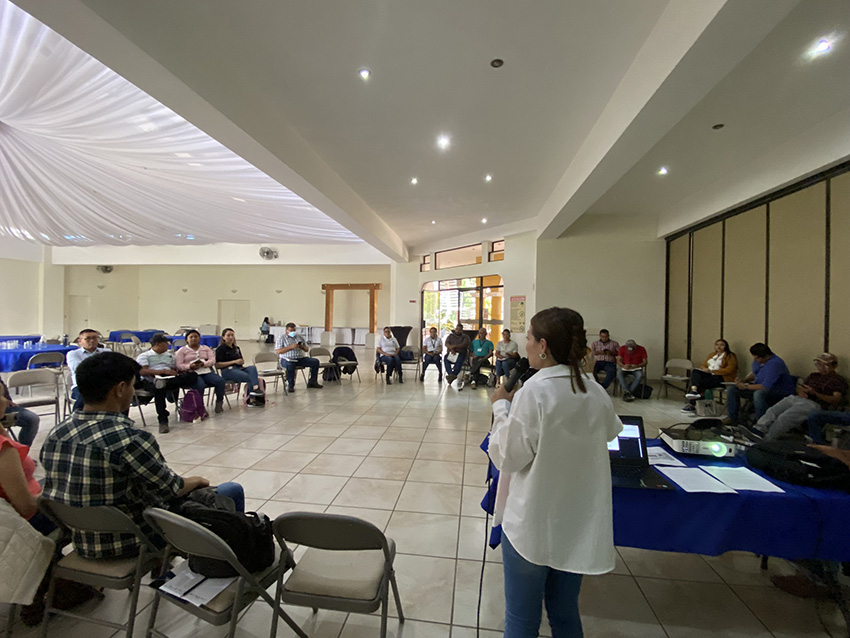
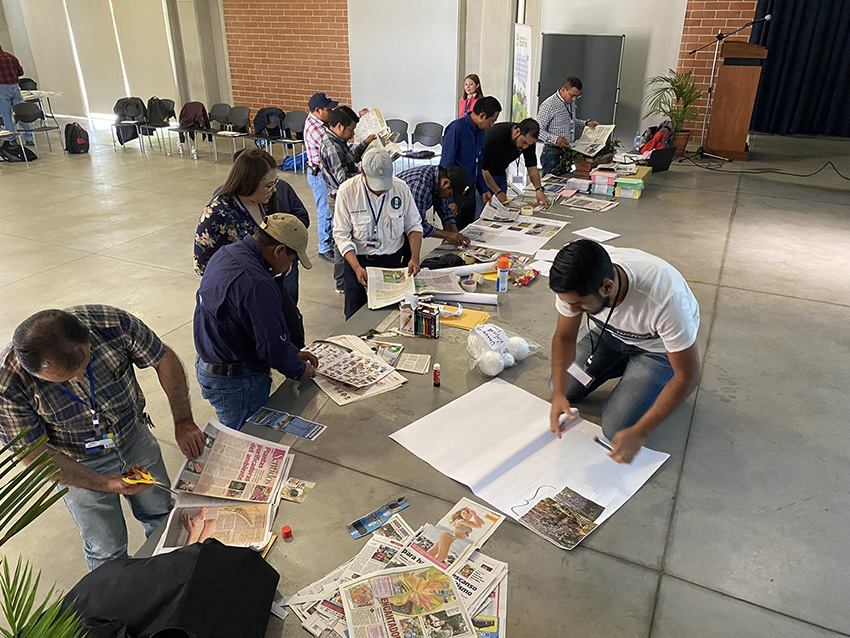
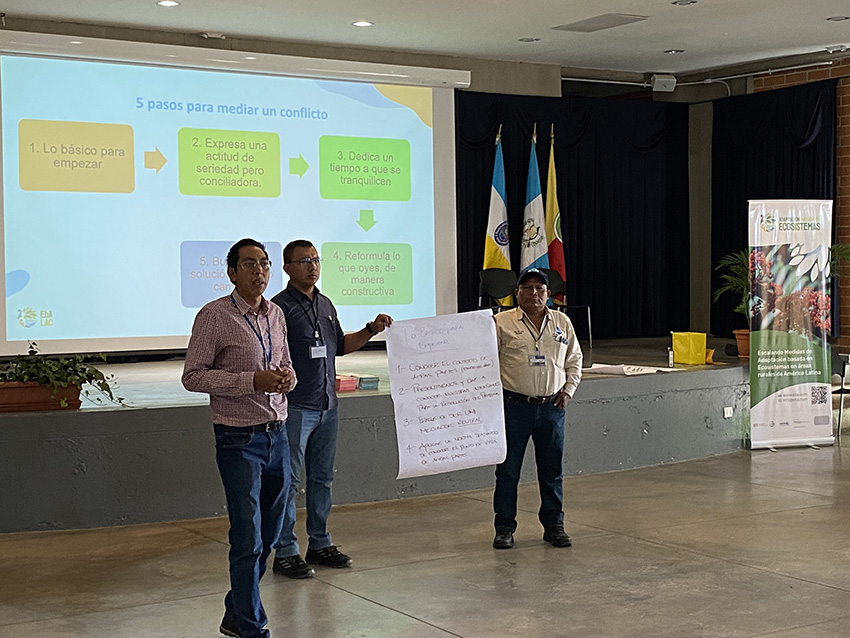
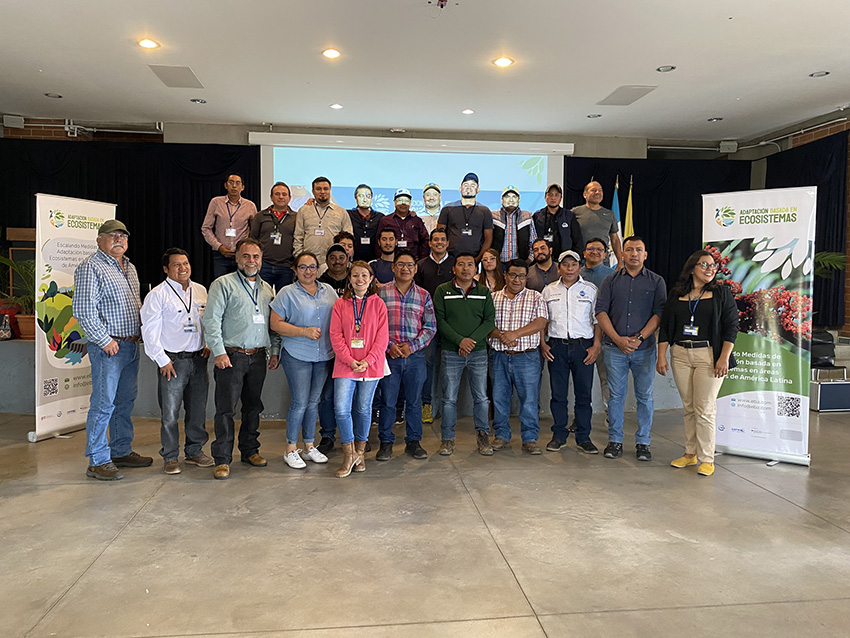
Tag:AbE, adaptación, Baja Verapaz, cambio climático, capacitación, CATIE, EbA LAC, ecosistemas, formación, formadores, GIZ, Guatemana, Quiché, UICN

